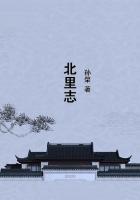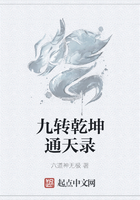Wide, however, as is the difference between the orthodox Theologian and ourselves, it is not more remarkable than the number of the points on which we can agree with him, and on which, moreover, we can make his meaning clearer to himself than it can have ever hitherto been. He, for example, says that man has been made in the image of God, but he cannot mean what he says, unless his God has a material body; we, on the other hand, do not indeed believe that the body of God-the incorporation of all life-is like the body of a man, more than we believe each one of our own cells or subordinate personalities to be like a man in miniature; but we nevertheless hold that each of our tributary selves is so far made after the likeness of the body corporate that it possesses all our main and essential characteristics-that is to say, that it can waste and repair itself; can feel, move, and remember. To this extent, also, we-who stand in mean proportional between our tributary personalities and God-are made in the likeness of God; for we, and God, and our subordinate cells alike possess the essential characteristics of life which have been above recited. It is more true, therefore, for us to say that we are made in the likeness of God than for the orthodox Theologian to do so.
Nor, again, do we find difficulty in adopting such an expression as that "God has taken our nature upon Him." We hold this as firmly, and much more so, than Christians can do, but we say that this is no new thing for Him to do, for that He has taken flesh and dwelt among us from the day that He first assumed our shape, some millions of years ago, until now. God cannot become man more especially than He can become other living forms, any more than we can be our eyes more especially than any other of our organs. We may develop larger eyes, so that our eyes may come to occupy a still more important place in our economy than they do at present; and in a similar way the human race may become a more predominant part of God than it now is-but we cannot admit that one living form is more like God than another; we must hold all equally like Him, inasmuch as they "keep ever," as Buffon says, "the same fundamental unity, in spite of differences of detail-nutrition, development, reproduction" (and, I would add, "memory") "being the common traits of all organic bodies." The utmost we can admit is, that some embodiments of the Spirit of Life may be more important than others to the welfare of Life as a whole, in the same way as some of our organs are more important than others to ourselves.
But the above resemblances between the language which we can adopt intelligently and that which Theologians use vaguely, seem to reduce the differences of opinion between the two contending parties to disputes about detail. For even those who believe their ideas to be the most definite, and who picture to themselves a God as anthropomorphic as He was represented by Raffaelle, are yet not prepared to stand by their ideas if they are hard pressed in the same way as we are by ours. Those who say that God became man and took flesh upon Him, and that He is now perfect God and perfect man of a reasonable soul and human flesh subsisting, will yet not mean that Christ has a heart, blood, a stomach, etc., like man's, which, if he has not, it is idle to speak of him as "perfect man." I am persuaded that they do not mean this, nor wish to mean it; but that they have been led into saying it by a series of steps which it is very easy to understand and sympathise [sic] with, if they are considered with any diligence.
For our forefathers, though they might and did feel the existence of a Personal God in the world, yet could not demonstrate this existence, and made mistakes in their endeavour [sic] to persuade themselves that they understood thoroughly a truth which they had as yet perceived only from a long distance. Hence all the dogmatism and theology of many centuries. It was impossible for them to form a clear or definite conception concerning God until they had studied His works more deeply, so as to grasp the idea of many animals of different kinds and with no apparent connection between them, being yet truly parts of one and the same animal which comprised them in the same way as a tree comprises all its buds. They might speak of this by a figure of speech, but they could not see it as a fact. Before this could be intended literally, Evolution must be grasped, and not Evolution as taught in what is now commonly called Darwinism, but the old teleological Darwinism of eighty years ago. Nor is this again sufficient, for it must be supplemented by a perception of the oneness of personality between parents and offspring, the persistence of memory through all generations, the latency of this memory until rekindled by the recurrence of the associated ideas, and the unconsciousness with which repeated acts come to be performed. These are modern ideas which might be caught sight of now and again by prophets in time past, but which are even now mastered and held firmly only by the few.
When once, however, these ideas have been accepted, the chief difference between the orthodox God and the God who can be seen of all men is, that the first is supposed to have existed from all time, while the second has only lived for more millions of years than our minds can reckon intelligently; the first is omnipresent in all space, while the second is only present in the living forms upon this earth-that is to say, is only more widely present than our minds can intelligently embrace. The first is omnipotent and all-wise; the second is only quasi-omnipotent and quasi all-wise. It is true, then, that we deprive God of that infinity which orthodox Theologians have ascribed to Him, but the bounds we leave Him are of such incalculable extent that nothing can be imagined more glorious or vaster; and in return for the limitations we have assigned to Him, we render it possible for men to believe in Him , and love Him, not with their lips only, but with their hearts and lives.
Which, I may now venture to ask my readers, is the true God-the God of the Theologian, or He whom we may see around us, and in whose presence we stand each hour and moment of our lives?

